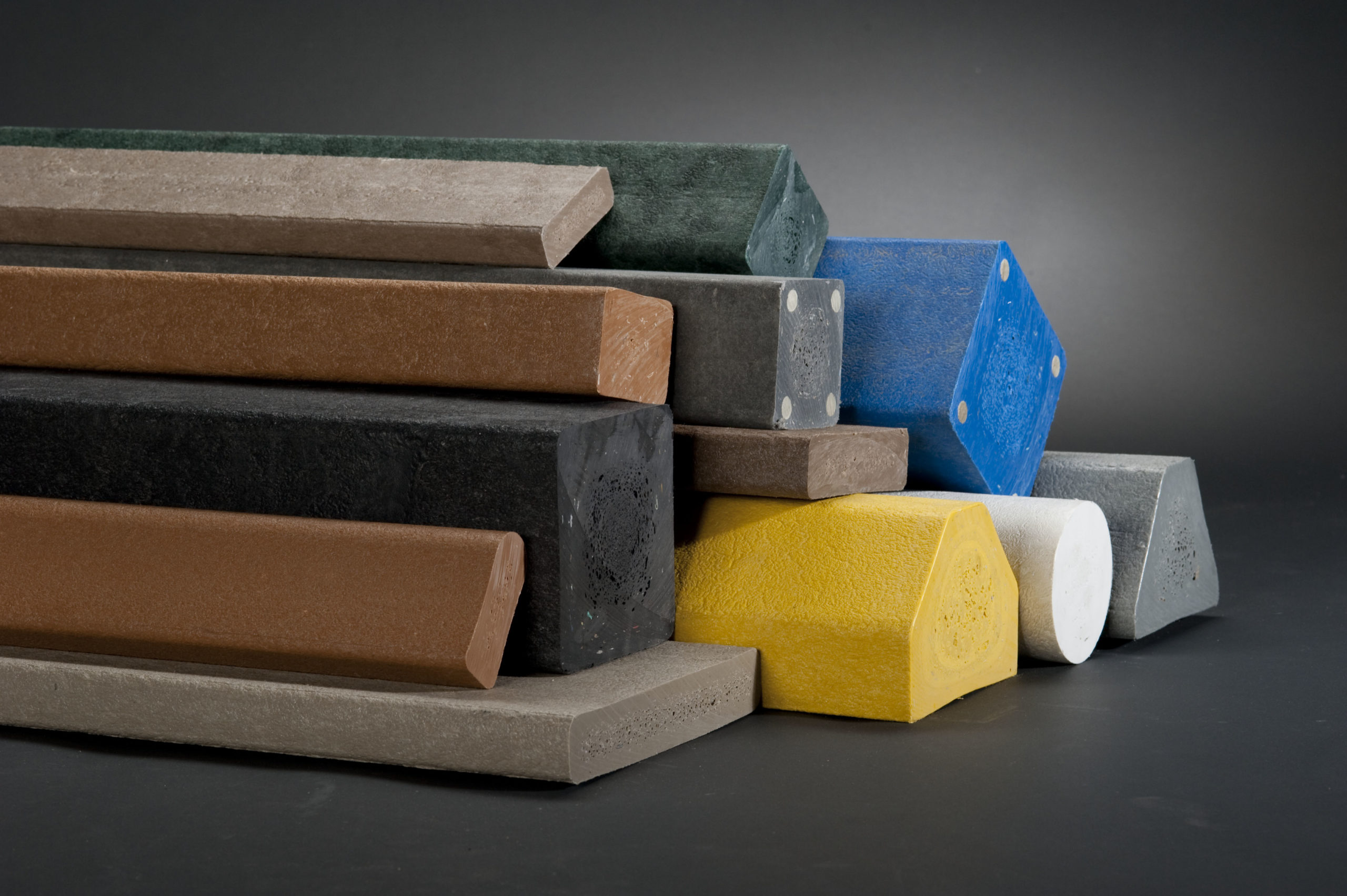Discovering the Uses and Advantages of Recycled Composites in Modern Industries
The combinations of recycled products with innovative composite modern technologies provides an encouraging avenue for improving sustainability, durability, and cost-efficiency across numerous sectors. As markets seek ingenious options to resolve environmental concerns and enhance functional performances, the incorporation of recycled composites arises as a compelling option.
Environmental Advantages of Recycled Composites
The application of recycled composites in contemporary markets offers substantial environmental benefits, adding to the reduction of waste and the conservation of natural deposits. By including recycled composites into producing processes, markets can lower their dependence on virgin products, thereby reducing the amount of waste produced and the energy required for removal and manufacturing. This shift towards using recycled compounds aids in drawing away materials from landfills, easing the worry on waste management systems, and lowering greenhouse gas discharges related to typical production techniques.
Furthermore, making use of recycled compounds promotes the conservation of natural deposits such as lumber, minerals, and water, which are usually diminished via the extraction and processing of resources (composites). By expanding the lifespan of materials via recycling, sectors can aid protect ecosystems and biodiversity by reducing the need for new resources. Generally, the fostering of recycled compounds in modern-day industries plays a crucial role in promoting sustainability and minimizing the environmental influence of manufacturing processes
Improved Sturdiness in Item Manufacturing
With a concentrate on long life and robustness, incorporating recycled composites into product manufacturing processes enhances longevity and sustainability. By utilizing recycled compounds, makers can develop items that are not only solid but additionally resistant to tear and use, making them perfect for long-term usage in different industries. The mix of different materials in recycled composites can usually lead to improved stamina and toughness contrasted to conventional products, supplying an affordable remedy for producing durable products.
One of the vital benefits of using recycled compounds in item manufacturing is the ability to tailor the product properties to satisfy details sturdiness needs. By readjusting the make-up and manufacturing strategies, suppliers can tailor the recycled composites to stand up to harsh environmental problems, hefty lots, or frequent usage without compromising on performance. This flexibility in design and production permits the production of very durable items that keep their honesty over time, decreasing the requirement for regular replacements and eventually adding to a much more lasting manufacturing process.
Cost-Effectiveness and Financial Advantages
Integrating recycled composites right into product manufacturing not only improves toughness and sustainability but additionally uses substantial cost-effectiveness and financial advantages. Making use of recycled composites can cause decreased product prices as recycled products are often more economical than virgin products. Additionally, recycling composite materials can decrease waste disposal costs and decrease the need for garbage dump area, adding to overall cost savings for markets.

Innovation and Layout Adaptability With Recycled Compounds
Using recycled composites in modern sectors provides unmatched chances for technology and design versatility. By including recycled products into composite manufacturing procedures, companies can press the limits of standard design restraints and explore brand-new opportunities. The flexibility of click this site recycled composites permits the development of intricate shapes and frameworks that may not be possible with traditional materials.
Among the essential benefits of recycled composites is their capacity to be formed right into different kinds, providing developers the liberty to experiment with one-of-a-kind sizes and shapes. composites. This versatility opens a globe of imaginative chances, making it possible for the advancement of light-weight yet durable products that fulfill the certain needs of different sectors
Additionally, using recycled composites advertises sustainable methods and sustains the round economic climate by reducing waste and lessening the ecological impact of producing processes. This concentrate on environment-friendly layout options straightens with the expanding trend towards sustainability in contemporary markets, making recycled compounds a valuable resource for forward-thinking and cutting-edge companies.
Applications Across Various Industries
Recycled compounds locate varied and impactful applications throughout a wide variety of industries because of their distinct homes and sustainability advantages. In the vehicle market, these materials are significantly made use of for manufacturing durable and lightweight components, enhancing gas efficiency and reducing carbon emissions. The aerospace industry take advantage of recycled compounds in the manufacturing of aircraft components, where the materials' strength-to-weight proportion is important for guaranteeing security and performance. In building and construction, these compounds are used for producing strong yet environmentally friendly building products, adding to sustainable infrastructure development. The eco-friendly power industry utilizes recycled compounds in wind generator blades and photovoltaic panels, utilizing their strength and resistance to harsh ecological problems. In addition, the aquatic sector uses these materials for making watercraft hulls and elements, supplying boosted resilience and corrosion resistance. The flexibility and sustainability of recycled composites make them valuable across different industries, driving innovation and environmental stewardship. composites.
Verdict
To conclude, the utilization of recycled composites in contemporary her explanation markets uses substantial environmental benefits, boosted longevity in item production, cost-effectiveness, and financial advantages. Additionally, making use of recycled composites enables development and design versatility across different industries. In general, the adoption of recycled compounds provides a lasting and sensible remedy for satisfying the needs of the industry while also lowering environmental effect.

One of the key advantages of making use of recycled compounds in item production is the ability to tailor the product buildings to fulfill particular resilience needs. Making use of recycled compounds can lead to lowered product prices as recycled materials are commonly much less pricey than virgin materials. The aerospace industry advantages from recycled composites in the manufacturing of aircraft components, where the materials' strength-to-weight proportion is essential for making sure safety and security and performance.